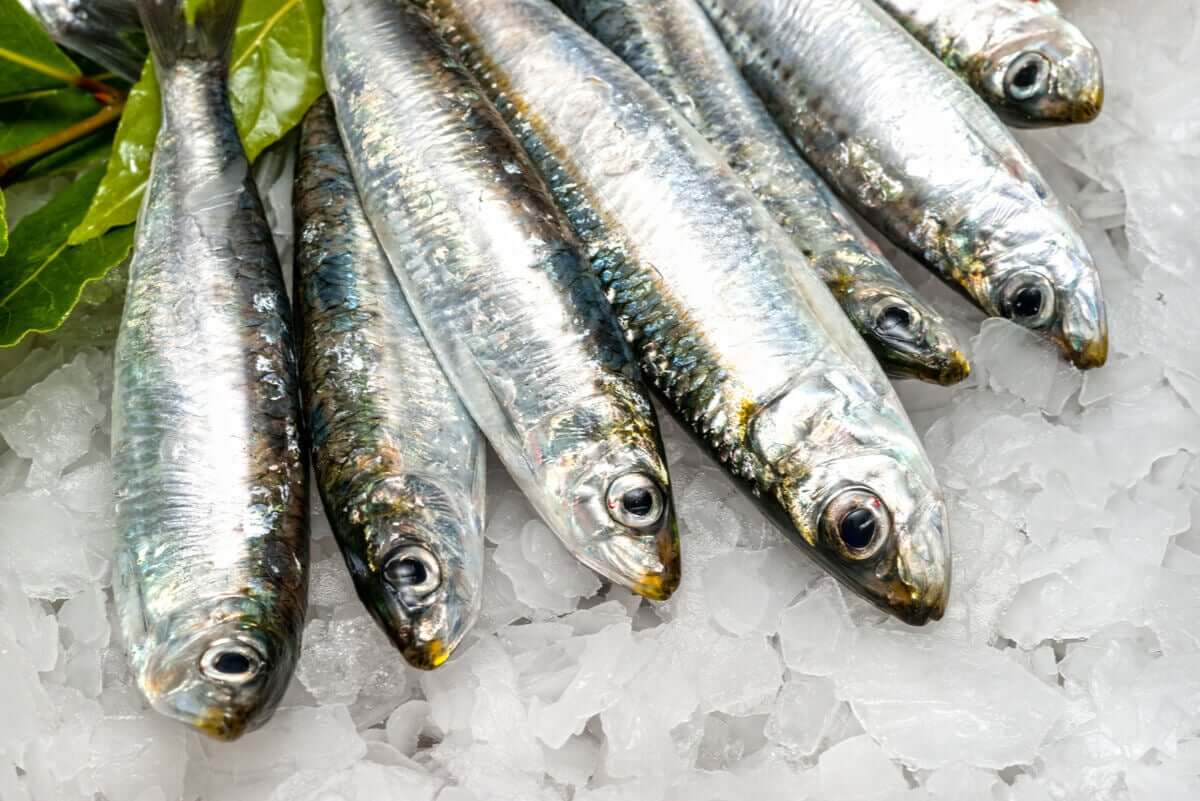The 3 Main Benefits of Sardines


Written and verified by the nutritionist Saúl Sánchez Arias
Consuming fish is a fundamental part of our nutritional intake. Fish offers essential nutrients for the formation of tissues and for the development of physiological reactions that take place in the body. Because of that, today we’re going to talk about the main benefits of sardines so that you can include these products in your daily diet.
The 3 main benefits of sardines
Before starting, we’ll repeat the important fact that sardines are included in the group of bluefish. One of the main characteristics of these foods is their higher lipid content, and so they have a higher energy value when compared to other less fatty varieties, such as hake.
We highly recommend the consumption of sardines. They’re part of the Mediterranean and Atlantic diets, two of the diets most recommended by nutritionists. Here are the three most important benefits.
1. Muscle health
Sardines contain a significant proportion of high biological value proteins. This means that they have all the essential amino acids and are highly digestible.
According to a study published in the magazine Nutrition Research, protein is fundamental when trying to avoid the progression of illnesses with muscular atrophy.
Therefore, we recommend consuming at least 1.2 grams of protein per kilogram of weight per day in sedentary adults. This will reduce the risk of suffering a loss of lean tissue, which is associated with a worse state of health.
However, proteins aren’t the only elements in sardines that are capable of improving muscle function; they also contain omega-3 fatty acids. These nutrients have been shown to preserve the health of the lean tissue, preventing the appearance of dysfunctions and catabolism.

Read this article to get to know more: All About the Function of Proteins in the Body
2. Benefits of sardines for bone density
One of the most frequent pathologies in women who have overcome menopause is osteoporosis. This disease causes a progressive reduction of bone density, which increases the risk of fractures, and worsens one’s quality of life.
To prevent the development of this disorder, it’s essential to have a regular intake of calcium. The good news is that sardines (especially their bones) contain large amounts of this micronutrient. According to a study published in the journal Maturitas, regular intake of calcium reduces the incidence of osteoporosis in adult women.
Because of this, we highly recommend including sardines in your regular diet. However, when eating them, you must ensure that you consume the small bones as well. Only the central one should be thrown away, as it can cause choking due to its large size.
You may also be interested in: What Are the Risk Factors for Osteoporosis?
3. They improve cardiovascular health
We’ve already mentioned that sardines contain unsaturated fatty acids. Nutrition experts have demonstrated a strong association between the consumption of these lipids and a reduction in the risk of developing cardiovascular illnesses. For this reason, we recommend that you include oily fish in your meals at least twice a week.
The fat content in our diet is also related to a reduction in blood pressure, which is important in the case of patients with essential hypertension. This is also the case in those susceptible to vascular-type disease.
In addition to this, sardines have a strong competitive advantage over other larger fatty fish, as they hardly contain any heavy metals in their composition. Because of this, there’s no compelling reason to limit their intake or to exclude them from the diet of sensitive patients, such as pregnant women.

Include the benefits of sardines in your diet
As you’ve seen, sardines are of great benefit to our health because of their excellent nutrient content. They should appear in all our diets regularly. And, as they’re so small, there’s no danger of a high heavy metal intake.
If you suffer from cardiovascular problems or want to reduce the risk of developing bone pathologies, we recommend increasing their intake. In addition to this, their consumption is fundamental in the case of sportsmen and women, as they contribute to maintaining bone mass and function.
Finally, we’d like to point out that you should be careful with how you cook sardines. It’s important to avoid frying them, as applying high temperatures to the lipids increases the chances of producing trans fats, which are harmful to our health.
It’s always best to cook them at a low temperature, in the oven, or on the grill. They can also be purchased canned.
All cited sources were thoroughly reviewed by our team to ensure their quality, reliability, currency, and validity. The bibliography of this article was considered reliable and of academic or scientific accuracy.
- Naseeb MA., Volpe SL., Protein and exercise in the prevention of sarcopenia and aging. Nutr Res, 2017. 40: 1-20.
- Jeromson S., Gallagher IJ., Galloway SDR., Hamilton DL., Omega 3 fatty acids and skeletal muscle health. Mar Drugs, 2015. 13 (11): 6977-7004.
- Cano A., Chedraui P., Goulis DG., Lopes P., et al., Calcium in the prevention of postmenopausal osteoporosis: EMAS clinical guide. Maturitas, 2018. 107: 7-12.
- Bernadot, Dan. Nutrición para deportistas de alto nivel. Editorial HISPANO EUROPEA, 2016.
- Hernández Triana, Manuel. “Recomendaciones nutricionales para adultos con sobrepeso corporal.” Revista Cubana de Investigaciones Biomédicas 27.2 (2008): 0-0.
- Raimann, Ximena, et al. “Mercurio en pescados y su importancia en la salud.” Revista médica de Chile 142.9 (2014): 1174-1180.
- Abdelhamid AS., Brown TJ., Brainard JS., Biswas P., et al., Omega 3 fatty acids for the primary and secondary prevention of cardiovascular disease. Cochrane Database Syst Rev, 2018.
This text is provided for informational purposes only and does not replace consultation with a professional. If in doubt, consult your specialist.








